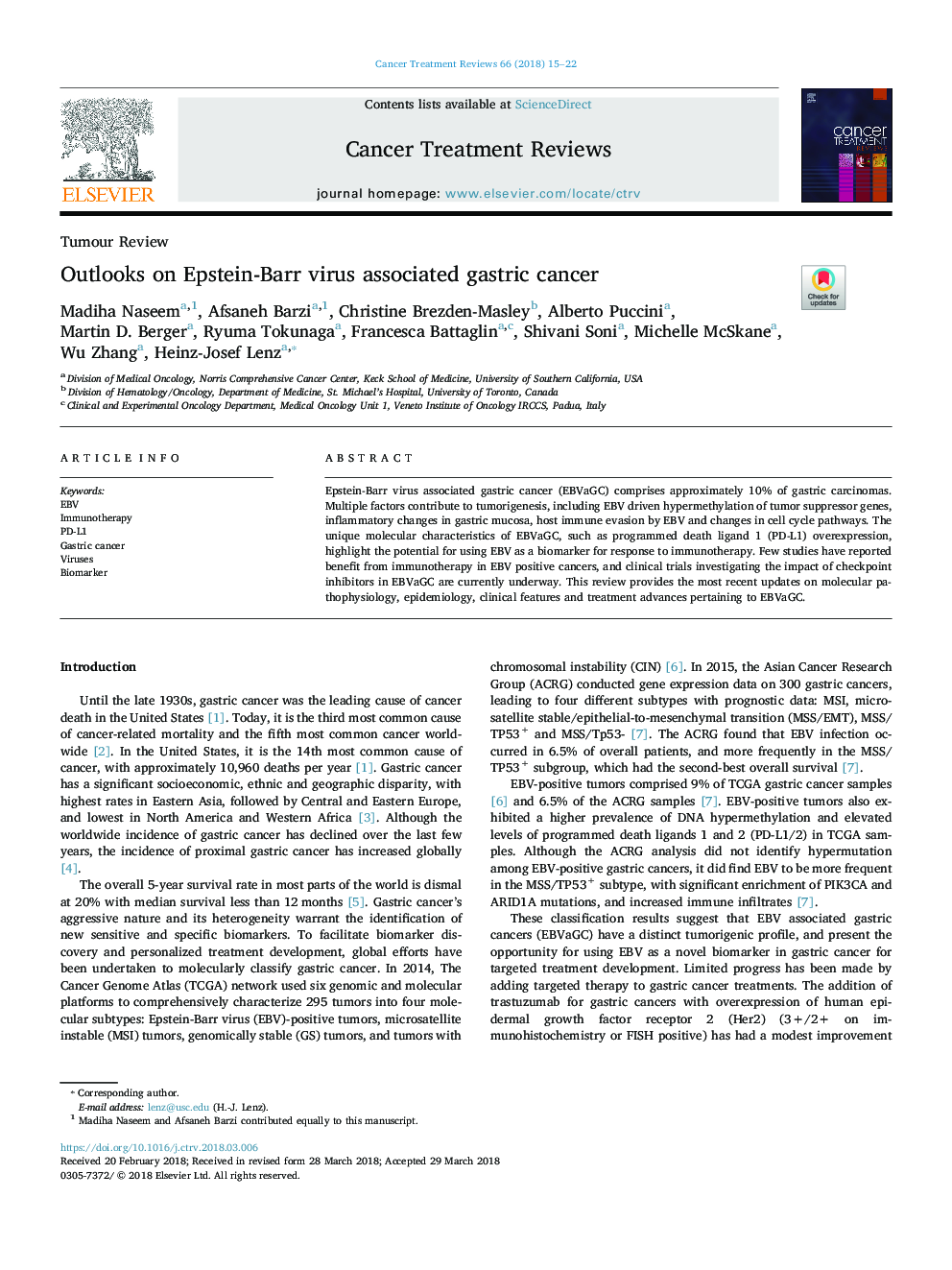| Article ID | Journal | Published Year | Pages | File Type |
|---|---|---|---|---|
| 8785862 | Cancer Treatment Reviews | 2018 | 8 Pages |
Abstract
Epstein-Barr virus associated gastric cancer (EBVaGC) comprises approximately 10% of gastric carcinomas. Multiple factors contribute to tumorigenesis, including EBV driven hypermethylation of tumor suppressor genes, inflammatory changes in gastric mucosa, host immune evasion by EBV and changes in cell cycle pathways. The unique molecular characteristics of EBVaGC, such as programmed death ligand 1 (PD-L1) overexpression, highlight the potential for using EBV as a biomarker for response to immunotherapy. Few studies have reported benefit from immunotherapy in EBV positive cancers, and clinical trials investigating the impact of checkpoint inhibitors in EBVaGC are currently underway. This review provides the most recent updates on molecular pathophysiology, epidemiology, clinical features and treatment advances pertaining to EBVaGC.
Related Topics
Health Sciences
Medicine and Dentistry
Oncology
Authors
Madiha Naseem, Afsaneh Barzi, Christine Brezden-Masley, Alberto Puccini, Martin D. Berger, Ryuma Tokunaga, Francesca Battaglin, Shivani Soni, Michelle McSkane, Wu Zhang, Heinz-Josef Lenz,
